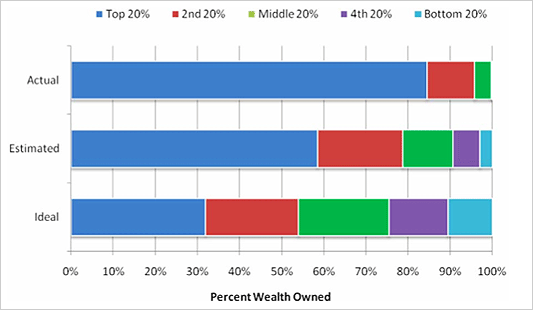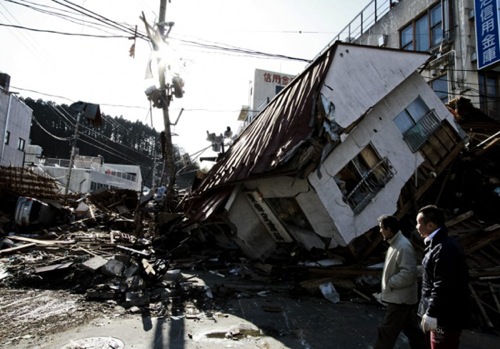According to new research from Harvard Business School, most Americans have no idea how wealth is distributed in this country.
Here’s a handy chart from the study that pretty clearly illustrates how Americans think wealth is distributed, how they wish it was distributed, and how it’s actually distributed:

(click chart to download a pdf of the study)
Did you know that there was such a huge difference between the very top and the very bottom of the wealth scale?
- - The top 1% (about 3 million people out of 300 million) holds 50% of the nation’s total wealth, and the top 20% owns 85%.
- – The bottom 20% of Americans (about 62 million people) owns less than 5%.
There’s an interesting discussion on the New York Times about why this might be the case, why Americans underestimate income inequality, and whether we should even care.
Are you surprised? What would you have guessed?




